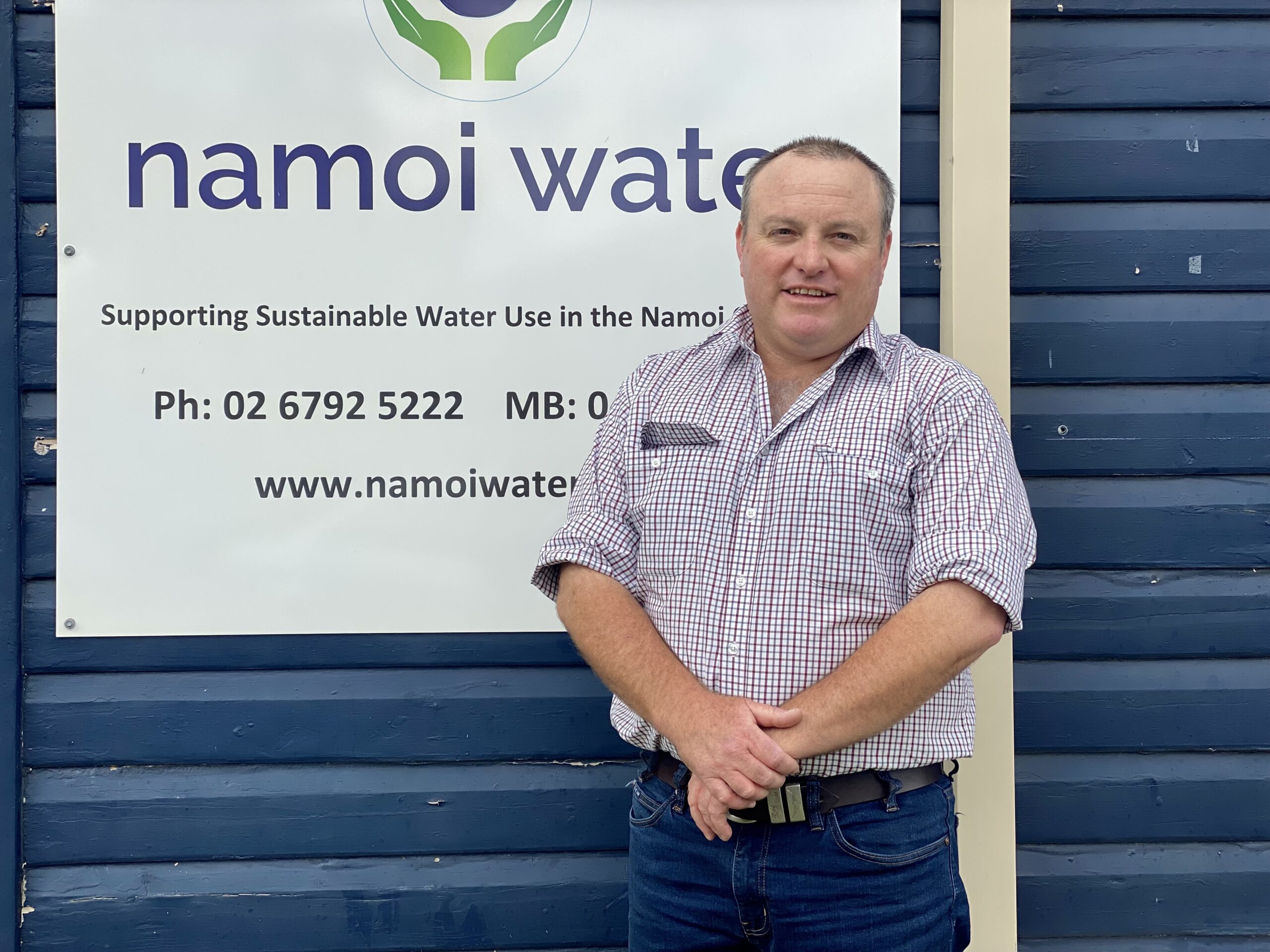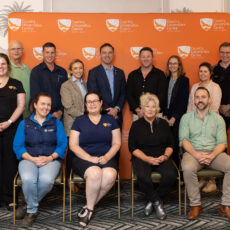Agricultural advocates are warning proposed river connectivity rules could cripple northern basin communities.
Namoi Water said it is alarmed by the independent Connectivity Expert Panel’s interim report released last week, which it says ‘proposes unviable reductions in water access that would tear away more than half-a-billion dollars from northern basin communities’.
Namoi Water executive officer Mick Coffey, based in Narrabri, said the NSW government must distance itself from the recommended rule changes, fearing farmers could lose up to half the water they rely on to prepare for droughts.
“These proposed changes genuinely threaten the survival of family farms, and in turn the agricultural businesses who support farmers, the main street shops of our towns – everyone in the northern NSW Murray-Darling Basin has a stake in this and it’s truly frightening,” Mr Coffey said.
“The panel itself admits it does not have the data or modelling to fully assess the potential impacts on upstream users or the benefits to downstream communities,” he said.
“Yet again another ridiculously premature step in the pursuit of political gain to release something like this before there is any credible science behind it.
“By allowing these proposed changes to eventuate would have devastating consequences for rural families and communities that rely on the jobs and income generated by irrigated agriculture.”
Namoi Water said it is essential to highlight that northern NSW already faces significant challenges in accessing water.
“Less than 20 per cent of northern NSW basin surface water is currently diverted on average, and recent rule changes have further reduced our access. We firmly believe that any decisions regarding water access must be based on thorough analysis and consideration of their impacts on our farms, our communities, and our environment.
“At some point Australia has to wake up and realise if the food and fibre production is allowed to be decimated, then they’ll be paying a fortune for imported garbage and by then it’ll be too late.
“Rushing into changes without proper assessment could have devastating consequences.
“We see this over and over in the water space, it seems there are never any lessons learnt by politicians,” Mr Coffey said.
“Before rushing into any new rules, it’s crucial that we fully understand the potential impacts on both agricultural productivity and the health of our rivers and ecosystems. We need evidence-based decision making that takes into account the long-term sustainability of water resources in the region.”
NSW Irrigators’ Council voiced the same concerns, also warning about more than half a billion dollars a year being ‘ripped from the local economies of struggling northern basin towns under inflated flow targets proposed by the Connectivity Expert Panel’.
NSWIC said the flow targets would effectively prevent farmers accessing any water during wet periods under their supplementary and floodplain harvesting licences.
“At face value, the lost net return from the inevitable hit to food and fibre growing is more than $520 million dollars every single year,” said NSWIC chief executive officer Claire Miller.
“That’s more than half a billion dollars ripped out of the local economies of towns such as Moree, Walgett and Bourke, which are already struggling with entrenched socioeconomic disadvantage, particularly in their indigenous communities.
“The panel admits in its interim report that it does not have the data or modelling to fully assess the potential impacts on upstream users or the benefits to downstream communities of its proposed rules.
“But that hasn’t stopped it making ill-informed recommendations to impose inflated flow targets that will effectively shut down irrigated agriculture in the northern NSW basin.
“Even after recommending all but shutting down supplementary and floodplain harvesting water access, they want the government to raid farmers’ general security accounts in the public dams if baseflow flows are still not meeting targets.
“And just for good measure, there’s an extra kick in the teeth for the Menindee community as well, with a recommendation that it is desirable to minimise storage in the lakes where possible.
“This rogue report is cause for alarm across the NSW northern basin.
“The NSW government must distance itself from the connectivity panel now if it is serious about supporting family farms in business and keeping small towns such as Moree and Bourke alive.
“We cannot afford to continue eroding access to the point farmers can no longer put water aside during wet years to help keep their farms and communities in business during the dry times.”
When asked for comment, a spokesperson for the NSW Department of Climate Change, Energy, the Environment and Water provided the below statements.
“The Connectivity Expert Panel was convened by the Minister for Water in 2023 to provide independent feedback on work being carried out by the Department to improve flows between connected catchments of the northern basin at important times.
“This is an interim report only.
“The interim findings and recommendations are the views of the panel. The Department is carefully reviewing all interim recommendations.
“Nothing has been implemented and no decisions have been made.
“We want to improve connectivity and support a healthy river system and environment, but we also note the need to consider all water users, including communities, industry and Aboriginal people, and we’re legally obligated to do so.
“The panel will provide its final report to the Minister in June 2024, at which time the NSW government will carefully review all recommendations and determine next steps. This will include analysis to understand the benefits and impacts of the panel’s recommendations.
“We will keep the community informed every step of the way as things progress.”
The panel will present its interim findings and recommendations at two public webinars in May.
To order photos from this page click here




